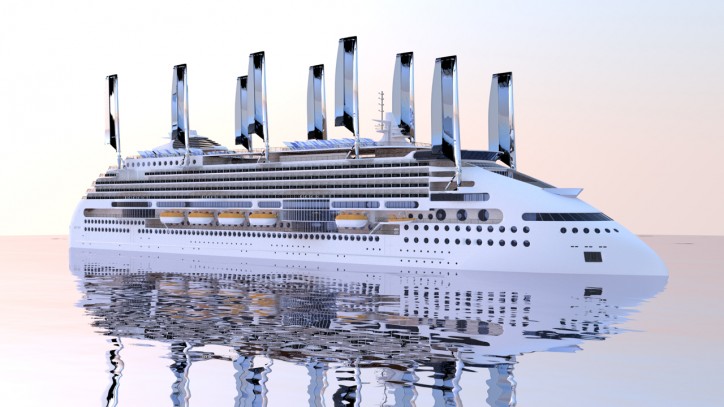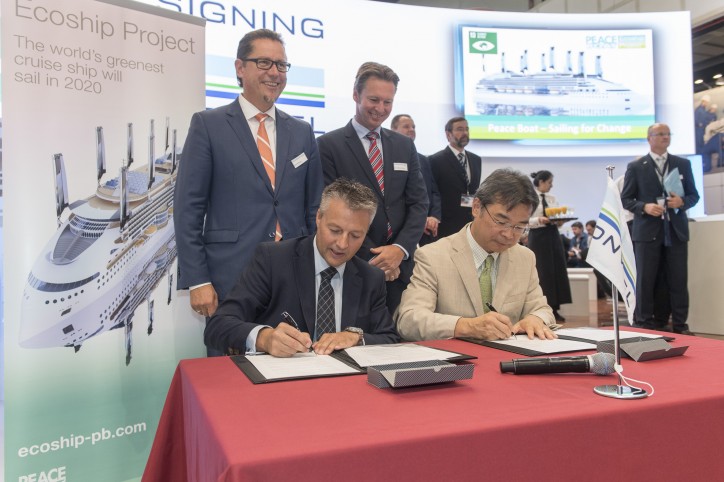At the SMM trade fair today, Peace Boat, the Japan-based international non-profit NGO, and classification society DNV GL signed a memorandum of understanding (MOU) forming a partnership to develop the Ecoship cruise ship. The MOU will see the partners work together on the design, construction and operation phases of Peace Boat’s Ecoship and the promotion of the Ecoship as a flagship for climate action, the Sustainable Development Goals and for sustainability in shipping.

With the Ecoship, Peace Boat set out to create a vessel design and a set of specifications that incorporates the latest environmentally friendly technologies, is out in front of incoming regulations, and offers a transition model towards a low-carbon economy. The process began in 2014 at a charrette in Hamburg where shipping and non-maritime experts worked together to develop a whole-system integrated design approach, based on the belief that elements of a system work best when they are specifically designed to complement rather than compensate for each other.

“The cruise industry is growing so fast, particularly in East Asia, and the need to mitigate the environmental impact of such expansion is very important. Through its technical characteristics and in the programmes that it carries out we hope it will encourage a model for ‘green’ cruising and further innovations in the cruise industry,” says Yoshioka Tatsuya, Founder and Director of Peace Boat.
“It’s very special to work with a customer, who is so in tune with the values of DNV GL. Their emphasis on sustainability, achieved through innovative approaches and the smarter use of technology, matches our own – and this project could be a great showcase for the industry. It is a privilege to be part of this,” says Knut Ørbeck-Nilssen, CEO of DNV GL – Maritime.
Architectural naval design company Oliver Design has based the Ecoship design on biophilic principles – using the solutions nature has evolved. The Ecoship design incorporates cutting edge technology to improve efficiency, reduce waste and minimize environmental impacts. Some of the most notable features include: ten masts to harness wind energy for propulsion, solar panel-covered sails and a 6,000m2 top-deck solar farm, a closed-loop water system to reuse, purify and re-purpose water, waste heat recovery systems where it is hoped that 80 per cent of the energy normally lost in the air and in the water can be reclaimed for use.
“We believe DNV GL has an important capacity to evaluate novel designs and is very agile in providing the proper answer to each new safety and technical challenge. Most importantly, we know that DNV GL, with its strong commitment to the sustainable development goals, shares our vision for Ecoship, and that our values align over the project,” says Andres Molina, Ecoship Project Director.
Source: DNV GL